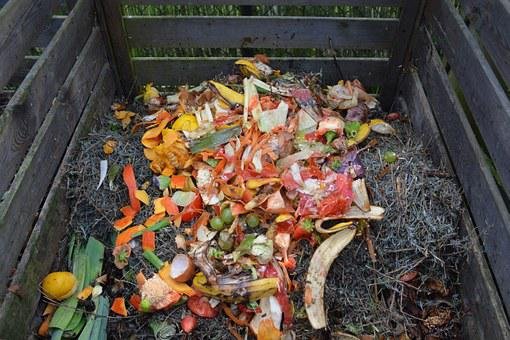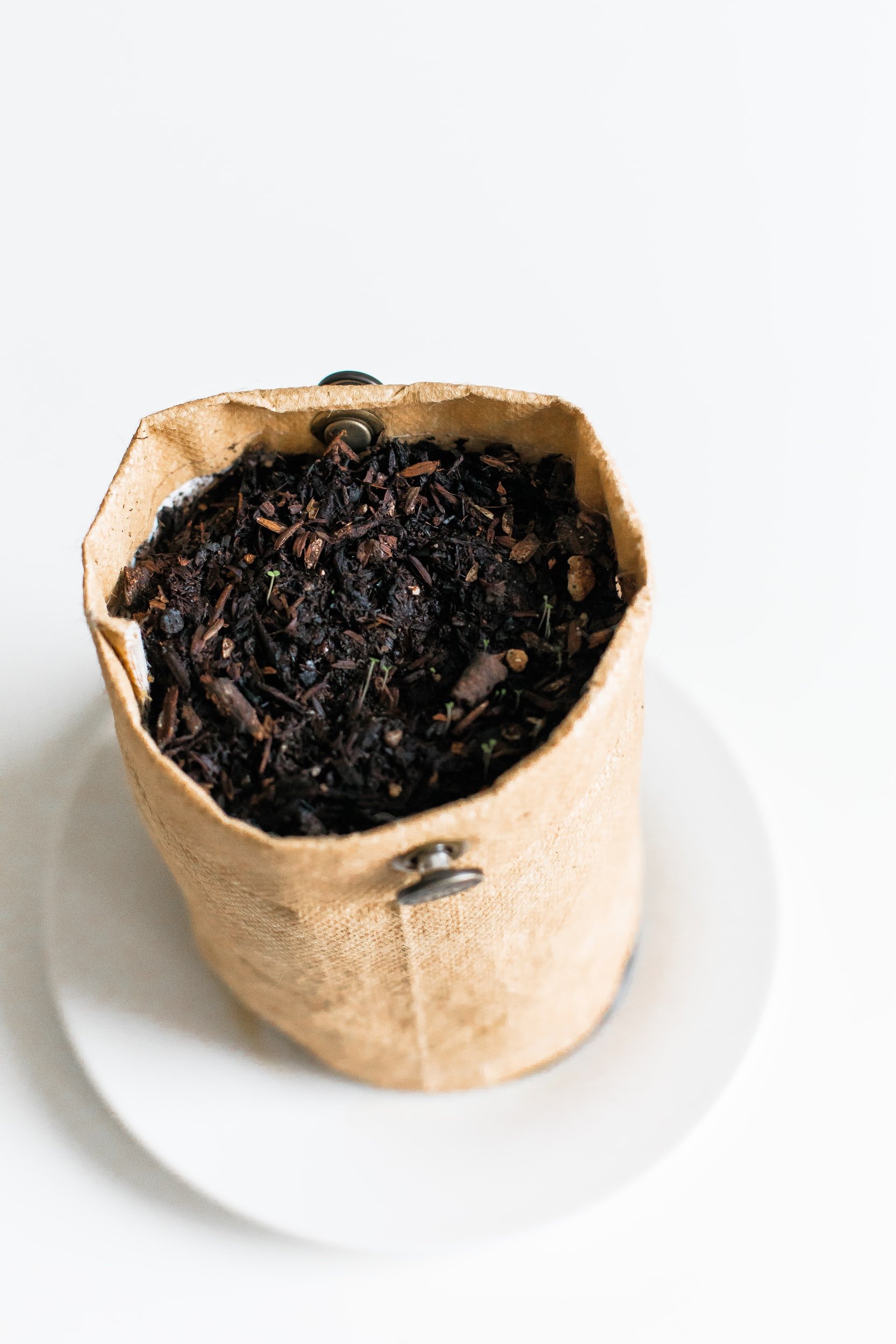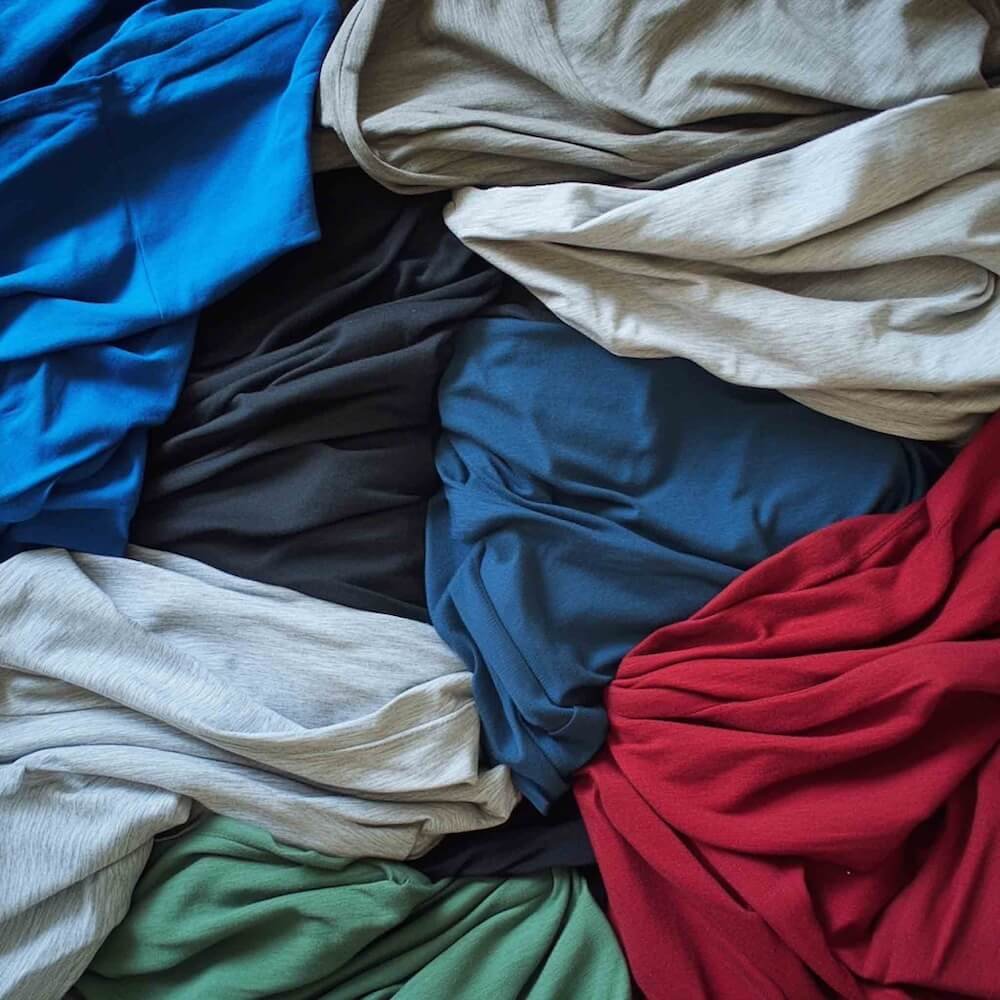What You Should & Should Not Put in Your Compost Pile
If you're composting at home, you probably know what to put in your bin and what to leave out. But if you're not sure, or if you're wondering whether that apple core is still okay to compost, read on!
This post will outline what NOT to put in your compost bin - so you can continue making rich, organic compost for your garden. Additionally, we will also list out the things that are surprisingly okay to compost!
This post does contain some affiliate links. If you decide to make a purchase The Honest Consumer will receive a commission. Our commission is at no additional cost to you.
What Is Composting? And Why It Is Important?
Composting is the process of breaking down organic matter, like kitchen scraps and yard waste, into a rich soil that can benefit growing plants.
Composting is important because it reduces the amount of waste that goes into landfills. Landfill waste doesn't decompose very well and it creates methane gas, which is bad for the environment.
Composting also reduces the need for synthetic fertilizers, which can be harmful to the environment. And finally, composting can help you save money on your gardening costs.
If you've got garden beds in your backyard then this is a great place to use the fertilizer you make from finished compost!
How to Compost
There are a lot of different ways to compost. Some people compost in their own backyard with a home compost pile, compost tumbler, some cities have compost pickups, and there are also indoor compost machines.
For me personally, I've composted for the last four years in a few different ways. When I was living in a small space apartment I used an indoor compost machine.
Currently, I'm able to take part in my city’s curbside compost pick-up which has been great. We use the Fresh Air Compost Bin by Full Circle to store our scraps in, take out our full compost bin to the curb each week, and it is picked up by our city.
What Not To Put In Compost?
While composting is a great way to reduce your impact on the environment and create a valuable fertilizer for your garden, there are some things that you should not put in your pile.
Also note that this list may be different depending on how you're composting. If you have a local city compost then select items may or may not be allowed.
Similarly, if you are using an indoor compost machine. If you have a compost heap in your backyard then most of this list will apply to you!
Backyard composters will want to take extra caution so they don't attract unwanted pests and wild animals. Here is a list of some items that you might want to avoid when composting!
Meat scraps, bones, or fat
While these items will eventually decompose, they can attract animals to your compost pile and create an unpleasant smell. In addition, meat scraps can harbor diseases that you don't want to introduce into your garden.
If you're creating your own compost pile it's best not to compost meat products. However, some city and commercial composting programs do allow animal products. This is one you would have to check!
Diseased plants
You don’t want to risk spreading diseases to your other plants, so it’s best to avoid adding diseased plants to your pile.
Weeds
For backyard composting you might want to avoid weeds! Some weed seeds can survive the composting process and end up in your garden. If you don’t want to deal with weeds, it’s best to avoid adding them to your pile.
Invasive plants
Invasive plants can spread quickly and take over your garden. If you don’t want them taking over, it’s best to keep them out of your backyard compost pile.
Pesticides and herbicides
These chemicals can linger in the soil and end up harming beneficial insects and other organisms. If you want to keep your garden safe, it’s best to avoid adding these chemicals to your compost.
Dairy products
For backyard composting you might want to avoid cheese, milk, and other dairy products as they can spoil quickly and attract rodents and other pests. However, some city and commercial composting programs accept dairy products as they do decompose under the right circumstances.
Synthetic chemicals
Fertilizers, pesticides, and other synthetic chemicals can contaminate your compost and harm plants.
Synthetic Fabrics
While some fabrics can be composted in commercial facilities, synthetic materials are not able to break down, so it's best to find an alternative place for synthetic clothing and fibers!
Styrofoam
Styrofoam is a petroleum based plastic, so this is no good in your compost pile!
By following these simple guidelines, you can ensure that your compost pile is safe for the environment and your plants!
What You CAN Put in Compost
Composting is not just for leaves and grass clippings. You can compost all kinds of things that you may never have thought of before.
Here are some items that you can add to you compost bin that go beyond lawn clippings!
Fruit and vegetable scraps
When you are cooking dinner, save your fruit and vegetable scraps in a composting bin instead of throwing them away. This includes things like apple cores, potato peelings, and carrot tops.
If you're composting fruits and veggie scraps that you didn't get the chance to eat, be sure to check for any sticky labels before throwing them in the compost.
Egg shells
Eggshells are a great source of calcium for your plants. Just Crush them up before adding them to the compost pile.
Coffee grounds and paper coffee filters
If you are a coffee drinker, save your coffee grounds and filters to add to the compost pile Oregon State University reports, "Coffee grounds encourage the growth of microorganisms in the soil, which use nitrogen for their growth and reproduction."
While the coffee grounds are being broken down by the microorganisms, the additional nitrogen in the fertilizer will provide a source of nutrients for your plants.
Tea Leaves
It's reported that tea leaves Tea leaves are naturally rich in nutrients such as potassium, phosphorus and nitrogen which are all great for composting. You can also compost select tea bags.
Greasy Pizza Boxes
While a lot of people think it's best to recycled greasy pizza and food boxes, it's actually best to compost them! Soiled cardboard products actually can't be recycled! So next time it's pizza night be sure to put that box in the compost!
Nutshells
Nutshells take a long time to break down, so it is best to crush them up before adding them to the compost pile.
Hair and nails
Yes, hair and nails can be composted. They are a great source of nitrogen for the compost pile.
Fireplace ashes
If you have a fireplace, you can add the ashes to the compost pile. Just be sure that the ashes are cool before adding them to the bin.
Paper towels and napkins
Paper towels and napkins can be composted, but it is best to avoid using bleached paper products.
Cardboard
Cardboard can be added to the compost pile, but it should be shredded first.
Dryer lint
Save your dryer lint to add to the compost pile. It is a great source of carbon for the bacteria in the pile.However, it's important to note that dryer lint can only be composted if the clothes you were drying were made from natural materials. If synthetic materials are in your load of laundry then bits of plastic can make their way into the dryer lint and into the compost.
Stale bread
Stale bread can be added to the compost pile, but it will attract animals so it is best to bury it under other items in the bin.
Grass clippings
Grass clippings are a great addition to the compost pile. Just make sure that they are free of chemicals and pesticides.
Leaves
Leaves are a great source of carbon for the compost pile. They can be left whole or shredded before adding them to the bin.
Pine needles
Pine needles can be added to the compost pile, but they take a long time to break down so it is best to shred them first.
Seaweed
Seaweed is a great source of minerals for the compost pile. It can be fresh or dry, but it is best to avoid using seaweed that has been treated with chemicals or pesticides.
Wood ashes
Wood ashes can be added to the compost pile, but they should be cool before adding them to the bin. They are a great source of potassium for the plants in your garden.
Pet Waste
Manure from herbivores (animals that eat plants) can be added to the compost pile. It is a great source of nitrogen for the plants in your garden. However, you might not want to use it on food generating plants and be aware manure has to be heated to 140 degrees to kill pathogens.
As you can see, there are many items that you can add to your bin that you may never have thought of before. So, next time you are about to throw something away, think about whether or not it can be added to your compost bin first!
And if you have a flower or vegetable garden take this opportunity to start repurposing your food waste into beneficial plant food. Happy Composting!
For more tips & tricks on sustainable living be sure to follow The Honest Consumer on social media, subscribe to our newsletter, & check out the Ethical & Sustainable Brand Directory.



















